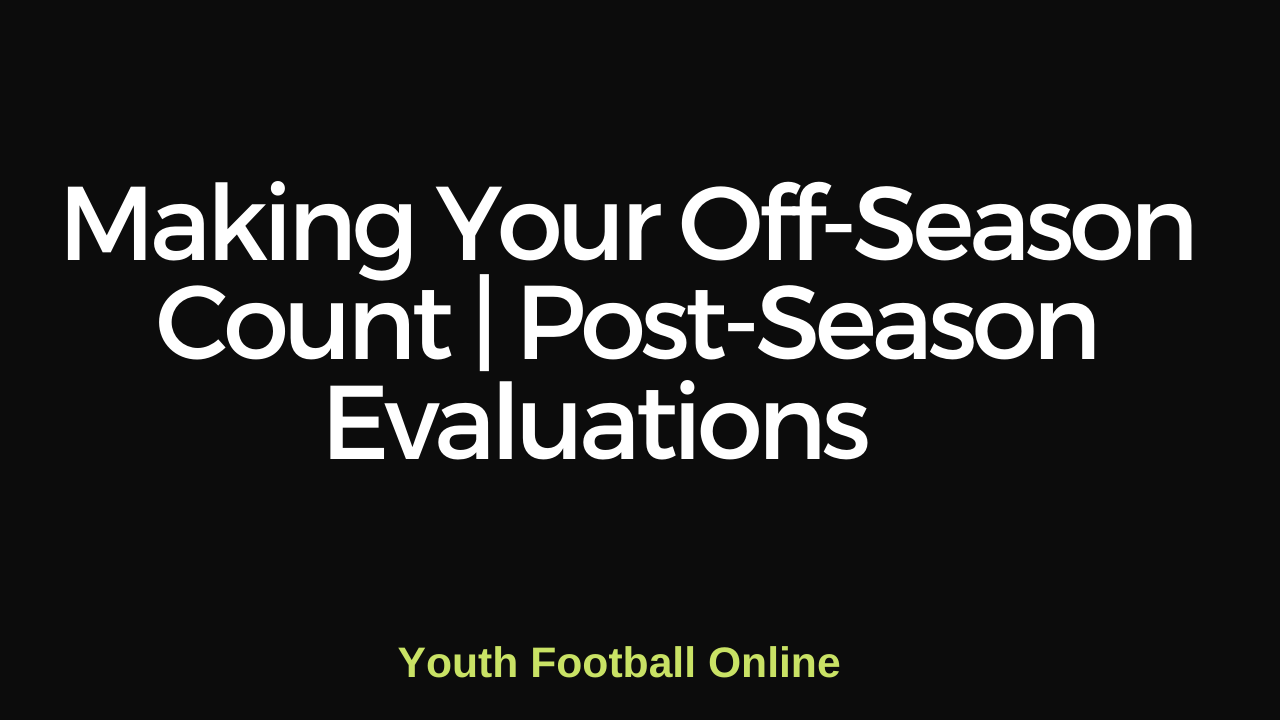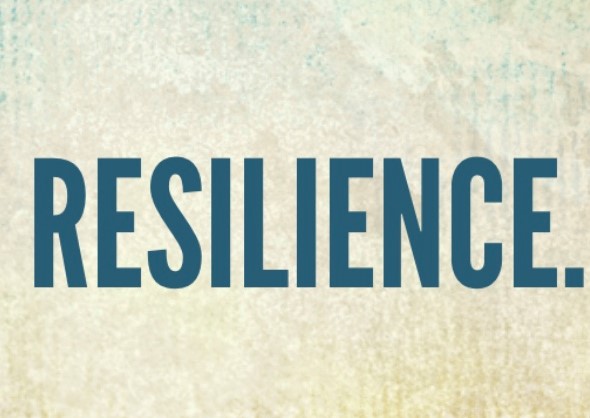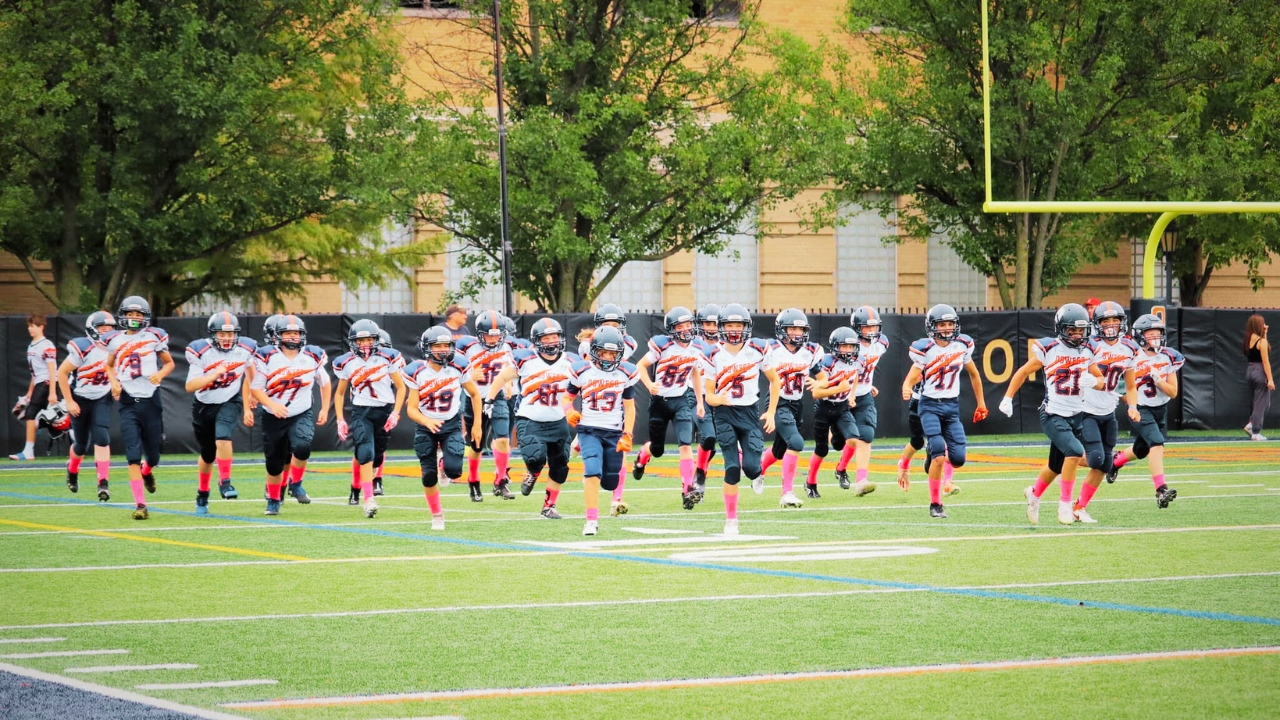Making Your Off-Season Count | Post-Season Evaluations

Now that the season is over for the majority of us it’s time we take a look and reflect on the past season. This is a very important process for coaches. Whether you won your league championship or your team finished in last place, it is critical that you evaluate every aspect of the season if you want to improve as coach. Underachieving seasons, winning seasons- they both provide an opportunity to evaluate the cause and effect of the situation and when it’s all said and done, both scenarios can make us better coaches. Here’s what I take a long look at during the off-season.
How productive were our practices?
The first thing I evaluate are our practices. I will also ask my coaches what they think and I will even ask some parents what they think (at the end of the season of course & the ones that are always watching). There is an old saying- championships are won at practice, which is why evaluating practices is a priority of mine. From time to time my practices will get a little repetitive. I’ve worked hard on coming up with ways to change things up, but sometimes I find myself being somewhat repetitive. The drills we do every single day are important drills that need to be done regularly, however I need to do a better job of mixing things up. This will keep things fresh and keep the kids focused and engaged. It’s important that practices are productive, organized and upbeat, but you need to also make them fun.
I do my best not to waste any minutes of practice. For example- if our kicker and QB are at the field early, I’ll have my kicker kicking and my QB throwing. If my center is at practice early, I’ll have him execute some snaps. Instead of letting them run around playing catch or allowing them to do nothing, we’ll use pre-practice to get some extra reps. This was something I really wanted to focus on heading into the 2019 season. For the most part, I think I did a much better job of utilizing pre-practice time. At the end of the day, I am always looking at ways I can make my practices more productive and ways I can make it much more fun for my players.
Was what we practiced and taught throughout the week absent on game film?
This is another big thing for me during the off-season. I will go back and watch every single play from the season. Every offensive snap, every single defensive play, and all of our special team plays as well. It’s important that you find out the why behind plays that didn’t work. Is there a schematic issue? A play calling issue? Players out of position? Technique issue? Going back and watching film a few weeks after the season is over you will actually see much more because you are now levelheaded. During the season I always watch the game film the day after. Even though I am somewhat calmed down the day after our game, I will still find myself somewhat emotional when I see something I don’t like on film. When you watch it again after the season is over you will see things much clearer.
Related Content: How Efficient Are Your Practices
There are a ton of schemes that work on paper, but are they being taught and executed on game day? This year for example, our Belly play struggled at times. The main issues was the pulling path of our play-side guard that is called on to pull and kick-out the defensive end. Many times my guards will pull too flat or they will belly back into the backfield. This didn’t allow us to kick out the defensive end properly and if the defensive end squeezed, he would blow up the play. So this was an example of how the play works schematically, but we were getting it done physically. This implies that we aren’t doing a good enough job of coaching or that we have a kid out of position. It’s important that you take a look at the plays that haven’t worked and figure out why they didn’t. Then you can make adjustments or you will sometime realize that this play might not be for your team and it needs to be removed from the playbook. Going back watching your game film with a clear mind is critical.
What do my assistants think?
When our season concludes, my coaches and I will all meet up and we’ll go over how the season went. Everyone will give their feedback and we will also watch some game film as well. Getting feedback from my assistant coaches is very important to me. It’s always good to get other options on the season. All my coaches are assigned a position to coach and during the off-season we will really evaluate how we are coaching each position. We will discuss ways we can teach our techniques better and we will also figure out what drills worked and what we need to change up. My assistant coaches spent the most time with their position groups so they will offer some of the best player feedback. When we meet up we will talk about all phases of the game- offense, defense, and special teams.
Related Content: 3 Rules for Creating Productive Practices
Did we get stronger and faster as the season went on?
This is very important! We did a great job the last two years of keeping track of our player progression, both physically and mentally. We will keep track of all their times when we run so that we can see if we are getting stronger and faster as the season progresses. As the head coach, I time the team as whole, my assistant coaches time their position. We time our positions during our ‘play sprints’ and pursuit drill. Instead of doing just sprints we will line our offense up and run through all our players and make the carryout the play for 20 yards. This allows us to get more play reps and while conditioning our athletes. It’s killing two birds with one stone! If our team didn’t improve we know we have to focus more on pushing our players.
How did we do in situational football?
This is an area I feel we need to be a better job of coaching. Our two-minute offense and 2 minutes defense wasn’t as good as it usually is. Some of it had to do with personnel some of it was that we didn’t practice it enough- which falls completely as me. We didn’t spend anywhere near enough time working on situation football. Situational football for me includes: 2 minutes / hurry up offense, 2 minute defense, special teams onside kicks and onside kick recovery (hands team). In my opinion, situational football is something that many coaches do not spend enough time on. Simple things like practicing spiking the ball is often overlooked by coaches. You can tell which teams have practiced it and which teams didn’t when you play them in a game.










